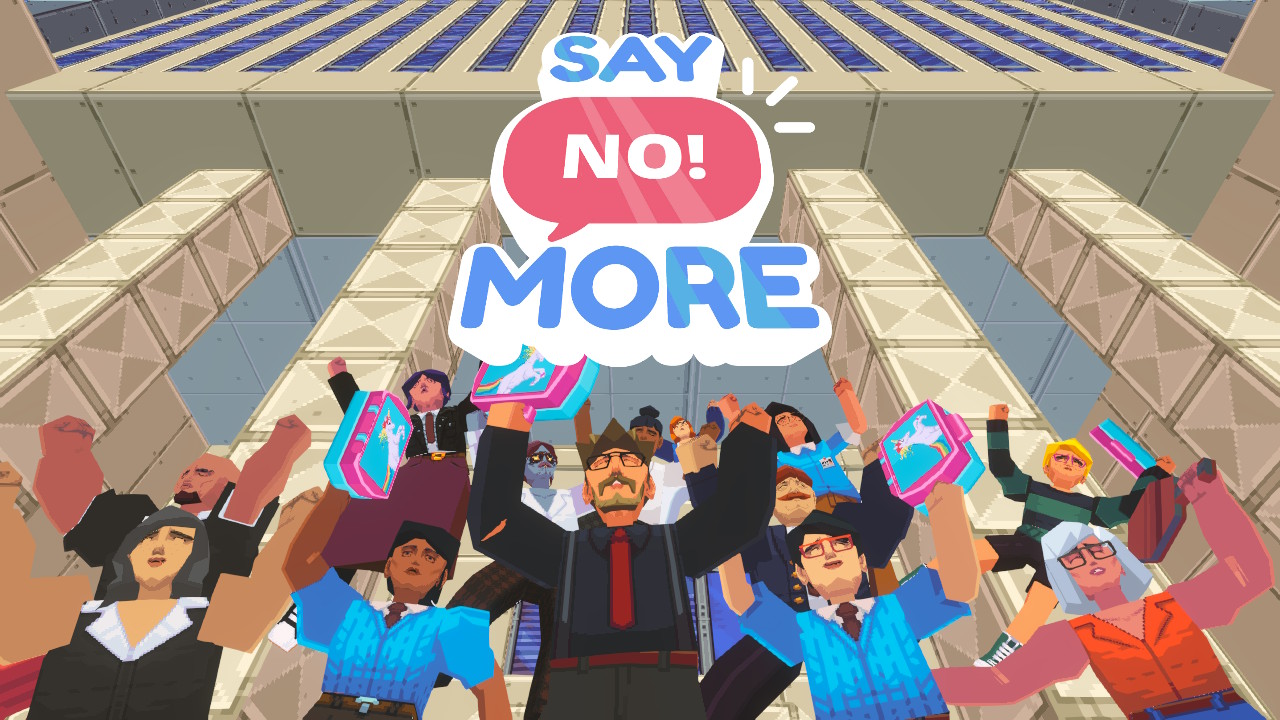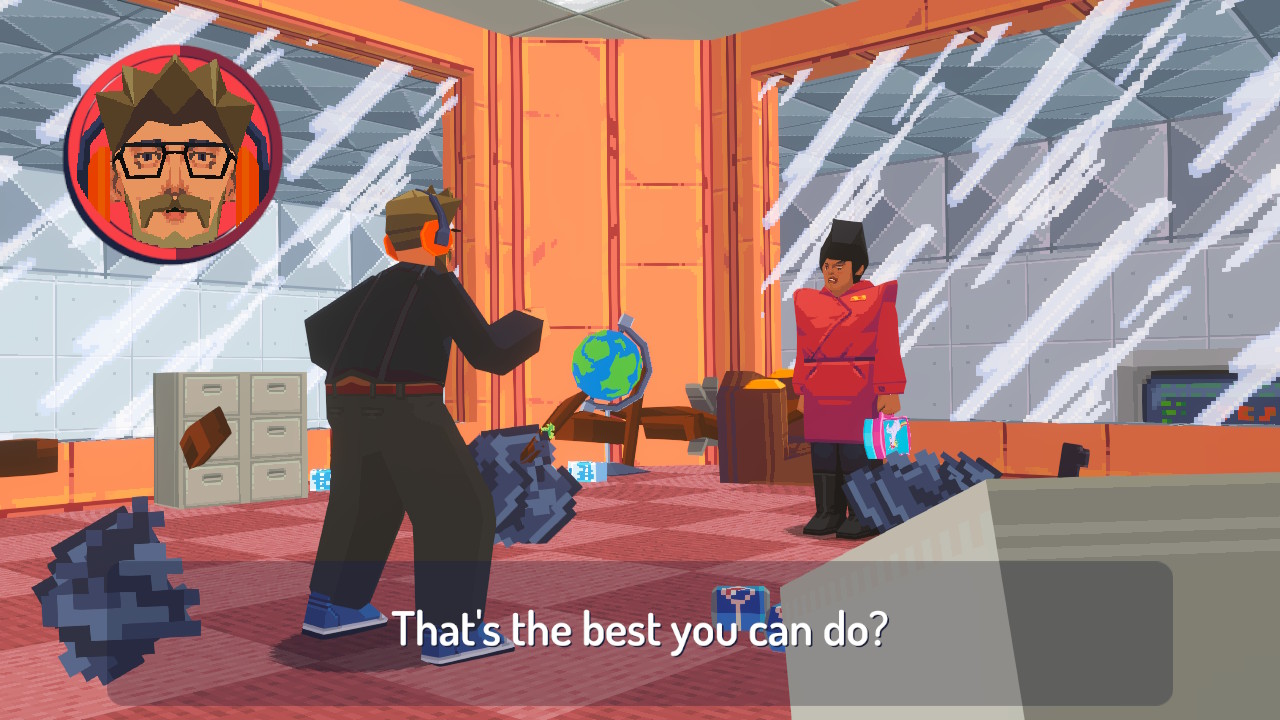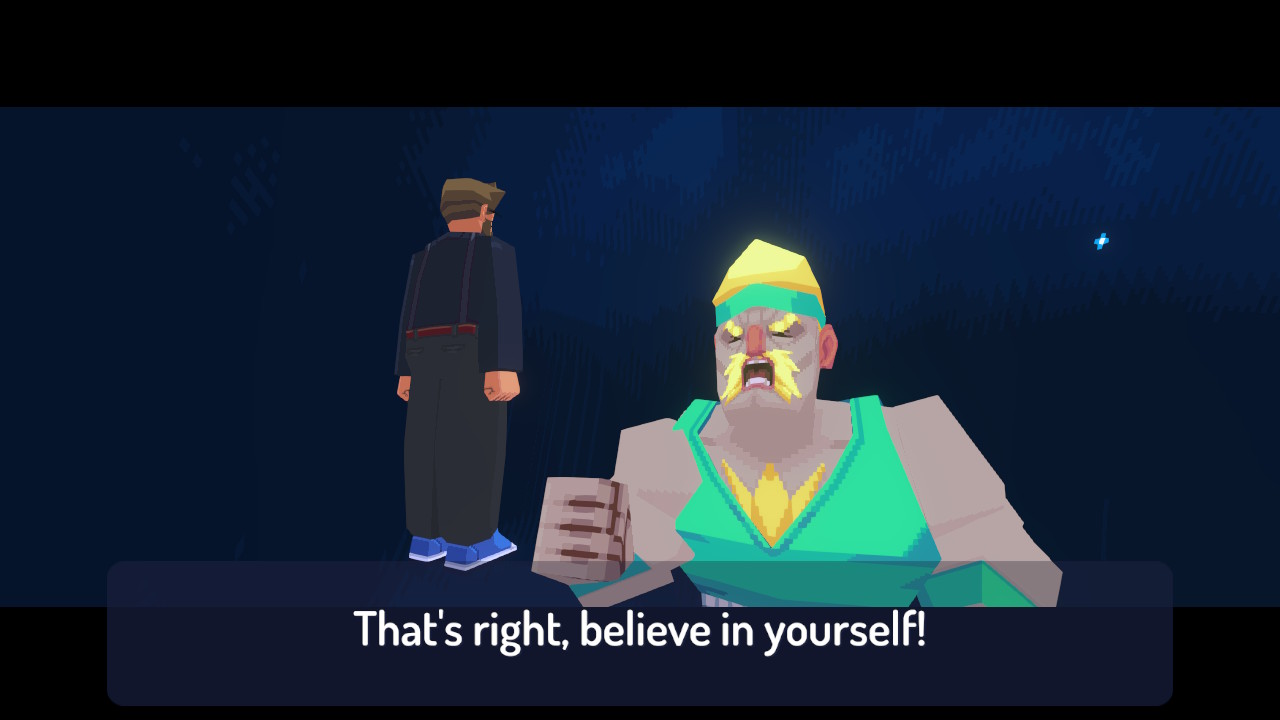
Say No! More
When you’re young, impressionable, and new to the world of work it can feel like something of an unspoken requirement for you to become an all-round people pleaser — saying yes to every request that comes your way, not just because you want to impress, but also because you may not know any better yet. Maybe this is just the way things are?
Well, arcade comedy Say No! More is here to teach us that it doesn’t have to be this way. Instead, this linguistic ‘nope em up’ guides players to a more assertive future, all through the power of saying No.
This narrative-driven experience plays out through the eyes of an intern starting a new role in a somewhat stereotypic corporate environment.

You begin by creating your character — choosing things such as hairstyle, fashion choices, and even how you sound (with an appreciated amount of multilingual voice options). Once you’ve created your intern it’s time to get to work.
You, along with a couple of other newcomers, are chucked into the office and quickly confronted with the realities of the working world. Get ready for uncomfortable banter, insincere tales of how you’re now part of a ‘family’, veiled threats to comply with any and all requests sent your way, and an overall tone to ‘know your place’ in the corporate structure you now find yourself in.

At first, it seems you’re somewhat powerless to do anything beyond complying, but thankfully you quickly find a source of inspiration. This encouragement comes via a music player (a neat retro cassette walkman complete with chunky over-ear headphones) — and it’s donning these headphones that temporarily transports you to an abstract space where a fanciful ‘work-out instructor meets counsellor’ will get you pumped up with the confidence you so clearly need. This ‘gym instructor turned motivational speaker’ teaches you how to say No.

With the power of refusal now within, you can begin to take on the office world around you. It’s here where the core gameplay of Say No! More reveals itself — it’s something of an on-rails experience where your character travels along the corridors of the office, with your new colleagues popping up with demanding requests. You tap the No button and sternly knock them away with your newfound boldness.
These sections do a really good job of satirically highlighting the absurdity of corporate office culture and the egos that often come with such spaces. The joke of just mashing a button and saying no to everything, whilst funny, does sadly wear a little thin quite quickly though.

However, to its credit the game does take a welcome turn, pivoting away from just constantly declining unreasonable work requests, to being a thing that’s broadly about helping others. With your newfound nopeness, you quickly move on to assisting other less confident colleagues, and through a series of cute and empowering scenes you band together to learn about getting what you want, declining stuff that’s not right for you, overcoming social anxieties and generally sticking it to the man.
Telling your boss ‘no’ is the ultimate goal here, and the aforementioned imaginary headphone guru does teach you novel new ways to say no on your journey to the top.

Sadly, there isn’t much to the gameplay beyond just shouting No in a handful of different styles. It remains an amusing but ultimately shallow gameplay experience throughout. Its real appeal lies in the genuinely funny and somewhat endearing story told via the various cutscenes.
These scenes deliver a core message about self-worth, not placing yourself in any uncomfortable positions, and having the confidence in your ability to navigate tough conversations. There’s one bit in particular that stood out to me, where you find yourself having to say no to someone close to you, highlighting how hard that can be.

Nevertheless, for all its narrative niceties, I would have liked to have seen the core mechanic of ‘shouting no at folks’ expanded upon — maybe building up a high-score through using power-ups and combos in some sort of endless arcade mode.
Say No! More looks great, totally nailing the late 90s/early 00s Dreamcast aesthetic, and has a rather sweet message as its core, but ultimately it feels like an arcade game that’s trapped by the admittedly wholesome and enjoyable narrative that is wrapped around it.

Overall this linguistic experience is a brief, bright, bold, motivational speech in video game form — with a good message at its heart. It’s fun and very funny, but how much enjoyment you will get from it depends on how much value you place on gameplay over narrative, and vice versa.
